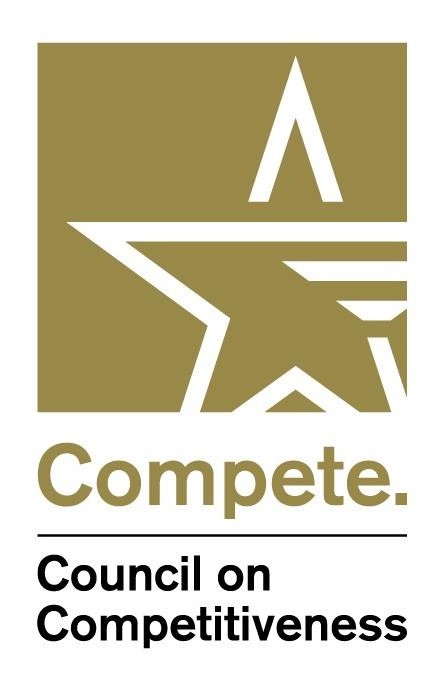
For more than two centuries, American industry has harnessed the nation’s abundance of natural resources, energy, talent and ingenuity to power and unleash the most productive economy in the world.
Dramatic shifts spurred by globalization, recession, regulatory and tax trends, ascendant and increasingly advanced industrial activity across Europe and Asia and accelerating changes in consumer demand have buffeted America’s industrial and manufacturing enterprises, threatening America’s place as a global superpower. Yet today, America finds itself facing a new, promising frontier shaped by two powerful transformations working in tandem:
- The generational re-emergence of advanced and highly productive manufacturing capacity in the United States; and
- The increasing abundance of innovative, sustainable, affordable and domestically- sourced energy.
To capitalize on this convergence, the Council on Competitiveness (Council) launched the Energy and Manufacturing Competitiveness Partnership (EMCP) in 2015, which leveraged more than a decade of leadership in the energy and manufacturing fields that began with the seminal National Innovation Initiative (NII) and continued most recently with the Energy Security, Innovation and Sustainability (ESIS) Initiative, the U.S. Manufacturing Competitiveness Initiative (USMCI) and the American Energy and Manufacturing Competitiveness (AEMC) Partnership The EMCP, a C-suite-directed initiative, focused on the shifting global energy and manufacturing landscape and how energy transformation and demand are shaping industries critical to America’s prosperity and security.
Over a span of three years, the Council executed an ambitious roadmap to focus national attention on the intersection of the energy and manufacturing transformations. Recognizing the tremendous innovation and changing landscape across the manufacturing sector, from 3D printing to the proliferation of sensing devices and the use of advanced modeling and simulation tools, the EMCP was designed to approach the country’s diverse industrial land- scape as a network of distinct but interdependent productive sectors, each with its own challenges and opportunities. Through a series of sector studies hosted around the nation by members of the Steer- ing Committee, the EMCP identified the salient questions and challenges facing the energy-manufacturing nexus within key sectors of the economy.
Seeking input from leaders throughout the private sector, academia, the research and scientific community, NGOs and government, each of the six sector studies looked at how decision-makers can bolster the critical pillars of competitiveness-technology, talent, investment and infrastructure.
The picture painted by these sector studies is, from one perspective, bleak.
- The United States is plagued by outdated regulatory and physical infrastructure that is failing to keep pace with innovation in sectors from materials to aerospace and beyond.
- The absence of a coordinated, defined research agenda to guide insufficiently-funded research and development is limiting the potential for advancement in key sectors such as bioscience.
- Science has a perception problem that can only be combatted through increased scientific literacy.
- The skills gap is growing, and will continue to get worse as workforce demographics shift.
- And, while all this is happening at home in the United States, global competition is ramping up as countries around the world realize the advantages of investing in a strong innovation ecosystem.
Wise policies and practices, in many cases, could unleash these American strengths, boost manufacturing engines and raise technology commercialization to new heights, driving U.S. economic growth and job creation. Developing next-generation physical and regulatory infrastructure to support the nation’s advanced energy and manufacturing enterprise will build the foundation upon which America’s economy can thrive and compete. Fueling the innovation and production economy from idea to implementation will allow for increased industrial productivity as the United States reaffirms its leadership in new knowledge creation and its end-use application. Moreover, catalyzing the power and potential of the American worker to thrive in an advanced manufacturing economy will enable the advanced technology-based economy of the next decade to provide higher-paying jobs for American families.
These key challenges, opportunities and recommendations discussed throughout sector studies on water and manufacturing, advanced materials, bioscience, agricultural and consumer water use, energy and aerospace—along with findings from a three- dialogue series on American cybersecurity—underpin the final report of the EMCP, Accelerate: Turbocharging the Manufacturing Renaissance in an Era of Energy Abundance, released on October 15, 2018.
The recommendations in the report—and the over ten years of work they encompass—have the power to turbocharge America’s manufacturing capabilities, improve America’s competitiveness and unleash a new wave of productivity, prosperity and resilience for all Americans.
EMCP Leadership
 |
Industry Co-ChairMr. Christopher Crane
|
 |
National Laboratory Co-ChairDr. William Goldstein
|
|
|
University Co-ChairThe Honorable Rebecca Blank
|
|
|





